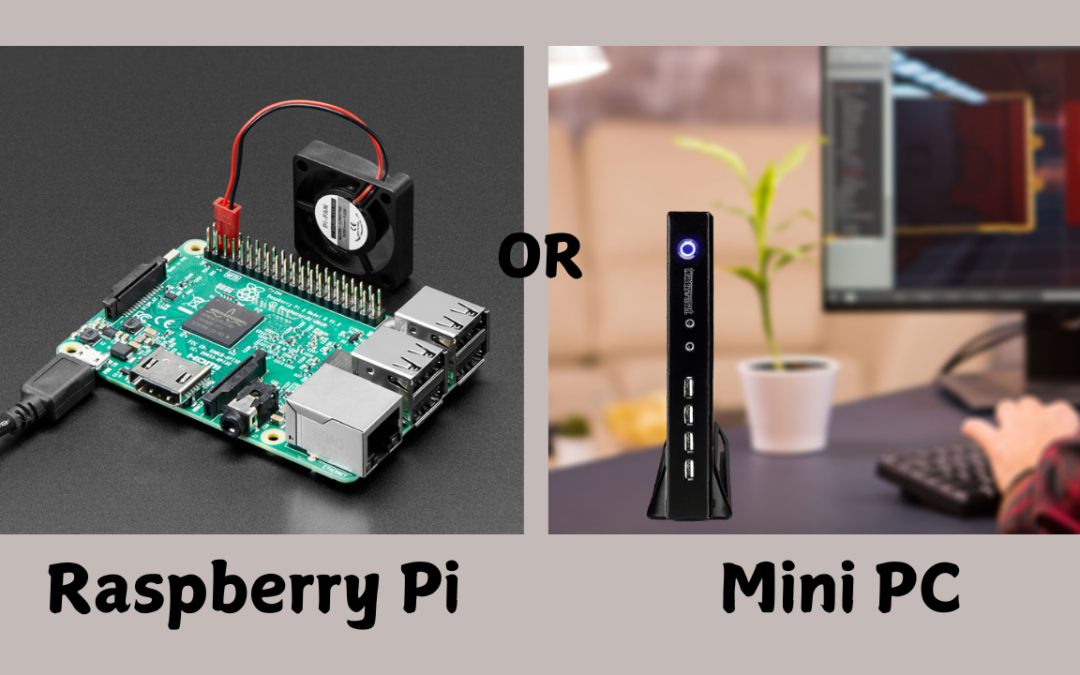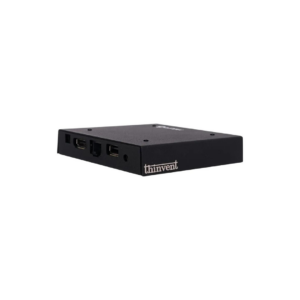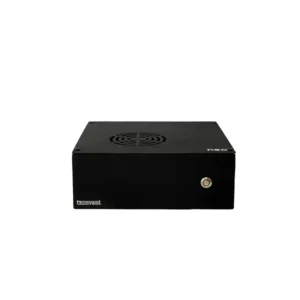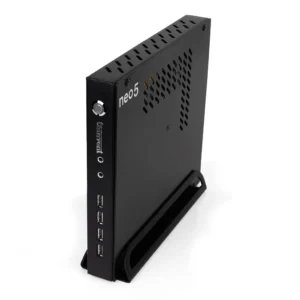In today’s technology landscape, businesses are increasingly exploring compact, versatile computing solutions for various professional needs. Raspberry Pi has been a popular choice for enthusiasts and educational purposes, thanks to its affordability and flexibility. However, when it comes to professional applications, particularly in fields like banking, education, healthcare, and industrial environments, commercial-grade mini PCs emerge as a superior choice. Here’s why mini PCs offer advantages in terms of performance, durability, and scalability, making them a more reliable option for businesses.
1. Performance Capabilities
Raspberry Pi devices, while sufficient for hobbyist projects, are generally less powerful than commercial mini PCs. They use ARM processors designed for light workloads, limiting their capacity for multitasking or running complex applications. Mini PCs, on the other hand, often feature Intel or AMD processors that deliver higher clock speeds and support more demanding tasks.
For example:
- Processing Power: Mini PCs come equipped with multi-core CPUs that handle parallel processing with ease, making them suitable for workloads that require data-intensive computations or high-resolution media streaming.
- Memory and Storage Options: While Raspberry Pi models typically max out at 8GB of RAM, mini PCs often start with 8GB and go up to 64GB, enabling smooth performance for professional-grade software applications and large databases. Moreover, mini PCs typically support NVMe SSDs, offering faster read/write speeds essential for real-time data processing
2. Durability and Reliability
For businesses operating in challenging environments—whether in industrial settings with dust and vibrations or office setups needing long operational hours—hardware durability is key. Consumer-grade devices like Raspberry Pi are not built to withstand constant use or harsh conditions.
- Industrial-Grade Components: Mini PCs are designed with robust components that can withstand temperature fluctuations, humidity, and dust, ideal for professional environments such as factories and fieldwork.
- Extended Operating Life: The materials and design of mini PCs are built for continuous use, providing longevity that consumer-grade devices like the Raspberry Pi struggle to match. For instance, mini PCs often include active cooling systems, which allow for extended operation without overheating, a critical factor in 24/7 business applications
3. Scalability for Business Growth
Scalability is crucial as businesses grow and their computing needs evolve. While Raspberry Pi can be scaled up in numbers, each device still operates as an independent unit, which limits its integration in enterprise environments.
- Centralized Management: Mini PCs often support remote management features that allow IT departments to oversee multiple devices from a single console. This is a huge advantage in sectors like banking, where mini PCs can serve as thin clients connected to centralized servers for seamless operation across branches.
- Enhanced I/O Capabilities: Mini PCs typically offer extensive connectivity options, including multiple USB ports, HDMI, DisplayPort, Ethernet, and even PCIe expansion for custom hardware. This flexibility allows businesses to scale their operations by integrating peripherals and additional networked devices as needed
4. Enhanced Security Features
In professional environments, data security is paramount. Commercial-grade mini PCs are often equipped with hardware-level security features like TPM (Trusted Platform Module) chips, BIOS-level encryption, and support for secure boot. These features help protect sensitive data, making mini PCs a preferable choice over consumer-grade Raspberry Pi, which lacks such security mechanisms.
- Hardware Security Modules: Many mini PCs are designed to meet enterprise security standards, making them compatible with secure network protocols and corporate IT policies.
- Operating System Flexibility: While Raspberry Pi’s OS options are limited, mini PCs support a wide range of operating systems, including Windows, Linux, and custom OS setups that cater to enterprise needs. This flexibility provides IT teams with better control over security updates, patches, and software compatibility
5. Long-Term Support and Warranty
Raspberry Pi, while affordable, doesn’t offer the same level of after-sales support as commercial-grade mini PCs. For businesses, long-term support and warranty services are vital to ensure consistent performance.
- Dedicated Support Channels: Mini PC vendors typically offer dedicated technical support and service warranties, essential for businesses that need rapid troubleshooting to minimize downtime.
- Software and Firmware Updates: Commercial mini PCs receive regular firmware and driver updates, ensuring ongoing compatibility with new software and improvements in security features. This is especially important in sectors that rely on stable and secure systems, such as finance and healthcare
While the Raspberry Pi is an excellent, low-cost solution for education, personal projects, and lightweight tasks, mini PCs offer clear advantages for professional applications. Their superior processing power, durability, scalability, security, and support make them well-suited for demanding business environments. As businesses look to expand and optimize their operations, investing in commercial-grade mini PCs can provide the performance and reliability necessary to stay competitive.
For enterprises focused on long-term performance and scalability, mini PCs are the smarter choice, ensuring professional-grade stability and adaptability in a compact, cost-effective package.




